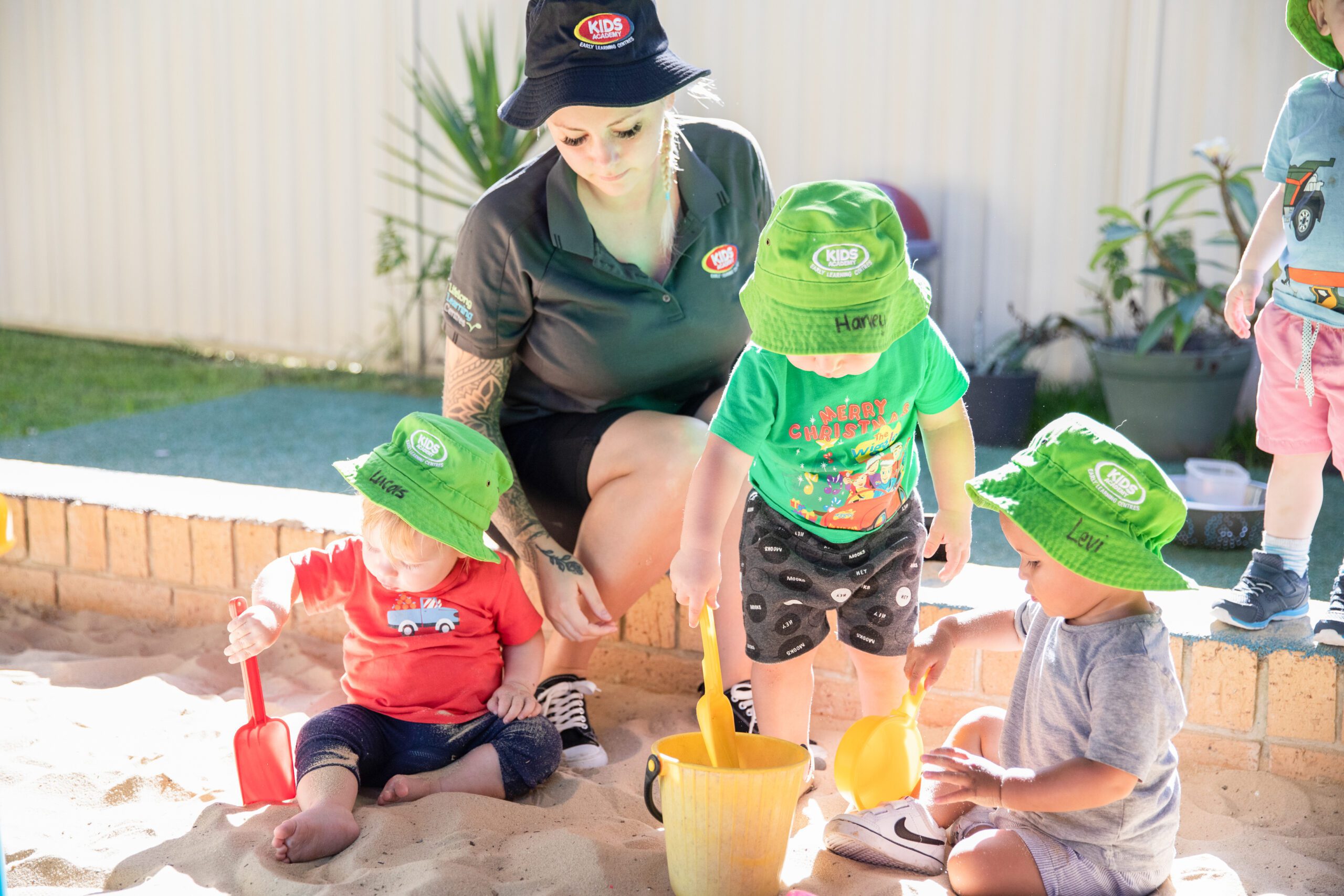
The friendships children form in their early years are more than just moments of fun and play - they lay a vital foundation for academic success. At Kids Academy Early Learning, we believe that these early friendships play a crucial role in your child’s development, helping them build essential skills that will support their journey through school and beyond.
How Early Learning Friendships at Kids Academy Support Academic Success
While academics are often the focus when discussing school readiness, social connections are just as important. Friendships help children develop key skills such as cooperation, communication, and problem-solving - all of which contribute to their academic success later on.
At Kids Academy, we foster an environment where friendships blossom naturally through group play, shared learning experiences, and collaborative projects. These interactions create opportunities for children to:
- Build social skills.
- Develop emotional resilience.
- Strengthen their ability to work in teams.
By encouraging friendships, we are preparing children not only for the social aspects of school but also for success in the classroom. You can read more about Affinity Education's Lifelong Learning Curriculum here.
Early Learning Friendships and Cognitive Development
One of the most powerful impacts of early friendships is the way they support cognitive development. When children play and learn with their peers, they engage in activities that challenge their thinking and stimulate their minds. This kind of collaborative learning helps children develop skills such as:
- Critical thinking: Working together on puzzles or building structures encourages children to think critically and creatively.
- Language development: Conversations during play help expand vocabulary, improve sentence structure, and enhance communication skills.
- Problem-solving: Friendships naturally lead to situations where children must work together to solve problems, whether it’s figuring out how to share toys or collaborating on a group project.
At Kids Academy, we design play-based learning activities that encourage these types of interactions, ensuring that children are developing both academically and socially.
How Friendships Build Confidence for a Smooth Transition to School
The transition from child care to primary school can be a significant change for children. However, having friends by their side can make all the difference. When children know they’ll be going to school with familiar faces, the transition feels less intimidating. They have a built-in support system that helps them feel more confident and secure.
At Kids Academy, we see firsthand how friendships ease the move to school. Children who have formed close bonds with their peers often enter school with higher confidence levels, ready to tackle new challenges and embrace the learning opportunities ahead.
Academic Benefits of Friendship-Driven Confidence
Children who feel emotionally supported by their friends are more likely to:
- Engage in learning activities: A child who feels confident is more likely to participate in classroom discussions and activities.
- Take on challenges: Friendships provide a sense of security, encouraging children to take risks in their learning, such as trying new tasks or exploring new subjects.
- Handle setbacks: With friends by their side, children are better equipped to manage frustration and learn from mistakes, key traits that lead to academic resilience.
How Kids Academy Educators Foster Friendships for School Readiness
At Kids Academy, our educators are deeply committed to fostering an environment where friendships can thrive. Through carefully designed group activities and collaborative projects, we encourage children to work together, share ideas, and form strong social bonds.
Our educators also model positive social interactions, teaching children how to communicate, listen, and resolve conflicts - all skills that contribute to both their friendships and their academic development.
By supporting friendships in our centres, we’re setting children up for success in their future learning environments. Children who can cooperate, collaborate, and communicate effectively are more likely to excel academically.
The Lifelong Impact of Early Childhood Friendships on Development
The friendships your child forms at Kids Academy Early Learning not only prepare them for the transition to school but also set the stage for lifelong learning. These early connections help your child:
- Develop critical thinking and problem-solving skills.
- Build the confidence to face new academic challenges.
- Establish a strong emotional foundation that supports resilience in the classroom.
Our Lifelong Learning Curriculum is designed to ensure that children are developing both academically and socially, giving them the tools they need to succeed in school and beyond.
Ready to Help Your Child Build Friendships That Support Academic Success?
Ready to give your child the advantage of early friendships that lead to academic success? Find your nearest Kids Academy Early Learning Centre and book a tour today and discover how we help children build the confidence and skills for school readiness.
To learn more about how to secure your child’s spot at Kids Academy, check out our post: How to Get Your Child Into Your Preferred Child Care Centre Quickly: A Checklist for Parents.